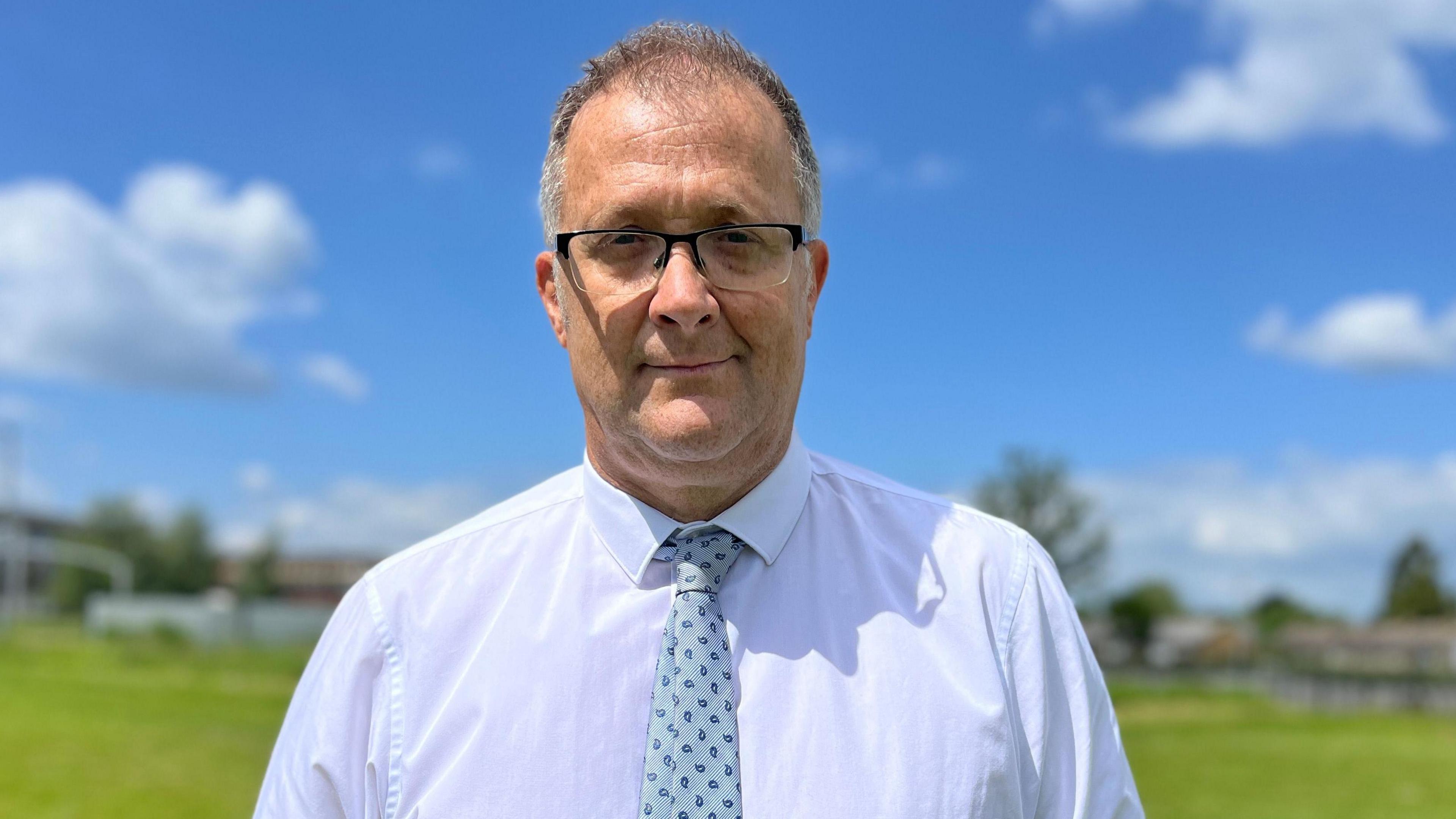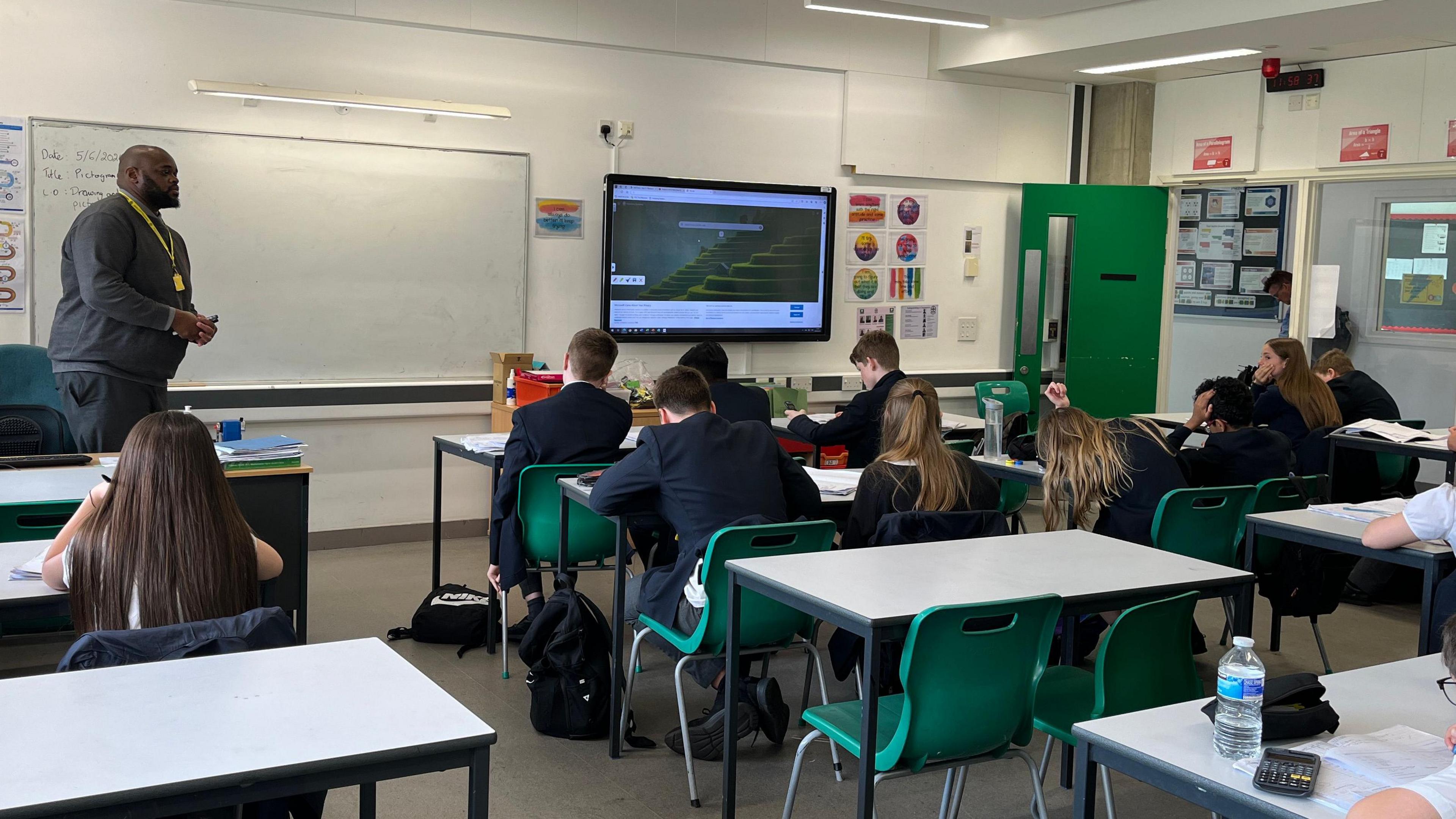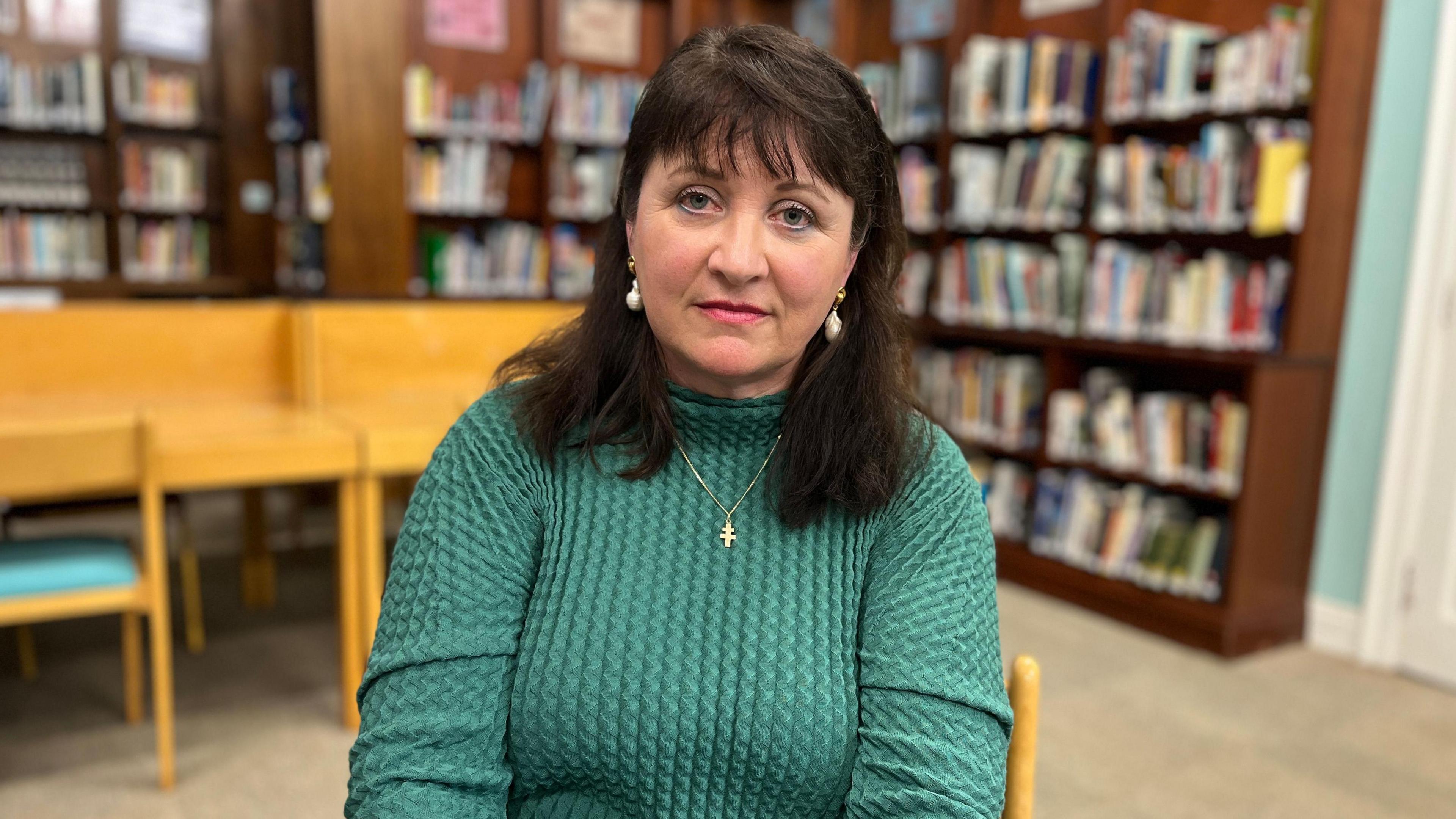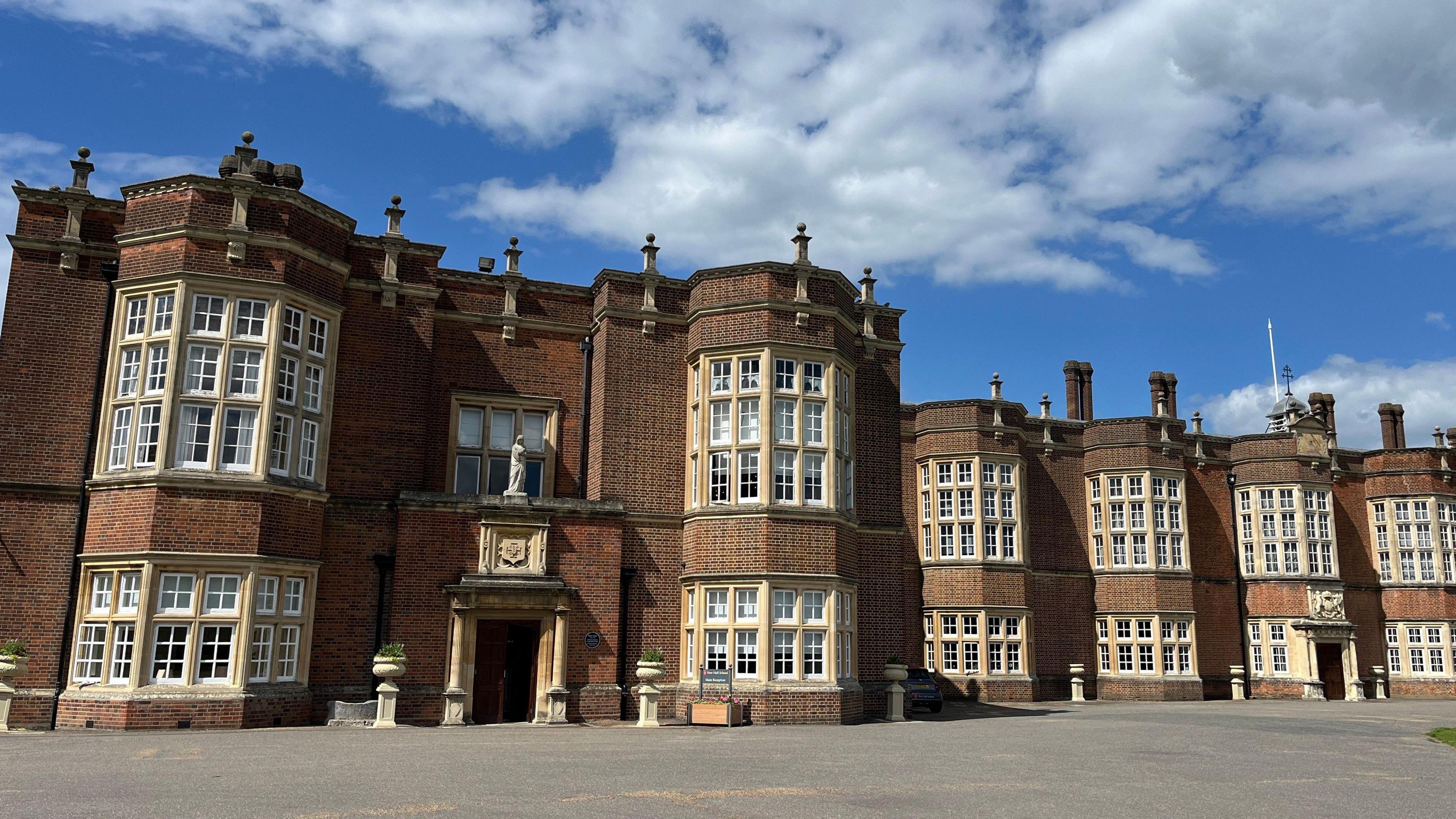Heads want school funding to be election priority

Vic Goddard says budget pressures are not "sustainable" for state schools
- Published
Two Essex headteachers have called for education funding to go up the political agenda in the election campaign.
Vic Goddard, who has led Passmores Academy in Harlow for 25 years, said the current situation was "unsustainable".
Katherine Jeffrey, the principal of the independent New Hall School in Chelmsford, said Labour's plan to charge private schools 20% VAT and end business rate relief, could lead to a "wipe out" in her sector.
A report, external published on Thursday by the Institute for Fiscal Studies, external (IFS) said the schools' budget would have to rise by 4% this financial year just to deal with inflationary pressures.
Passmores is a state-funded school in an area of socio-economic deprivation.
It has 1,200 pupils on roll and has consistently been rated "good" by Ofsted.
But next year the academy will have to take on 100 additional pupils, while finding budget savings of £40,000.
"We have to have funding that meets costs, it's as simple as that", Mr Goddard said.
"I'll have more children, but I've got less money," he added, "the only thing we can do is get rid of teachers or not replace resources."

A Year 8 maths lesson at Passmores Academy
Mr Goddard is the chief executive of a Passmores Cooperative Learning Community, which oversees six schools in Harlow and said "nothing is off the table" when it comes to finding savings.
He said he tells headteachers at the other schools, "If you want more of something, you've got to have less of something else".
That includes classroom support for vulnerable children and new learning resources, he said.
"All of those things that should be necessities, now feel like luxuries."

Katherine Jeffrey has been principal of New Hall for 22 years.
Twenty miles away at New Hall School in Chelmsford, funding is also high on the agenda of principal Katherine Jeffrey.
The Catholic independent school has 1,400 students from the prep school up to the sixth form.
Ms Jeffrey is deeply concerned about Labour's plans to remove the VAT exemption on independent school fees.
She said around 300 children at the school are already in receipt of means-tested bursaries because they cannot afford the full fees.
The school could not afford to absorb that tax rise, she said, meaning "those families would potentially not be able to continue at the school", with the impact falling on the state sector.

New Hall was founded by a Roman Catholic religious order in 1799
Ms Jeffrey said the potential future policy had caused "uncertainty for parents and schools" in the sector.
The preparatory school will be reduced from three forms to two from next year she said, because fewer parents feel they will be able to afford to send their children to the school.
She believes it to be an existential threat for independent schools, citing a recent example of private schools forced to reduce fees because they could not offer the full educational experience.
"The pandemic, the lockdowns wiped out 20% of the Catholic independent sector."
She said that half of the remaining schools were "struggling on break-even budgets".
Ms Jeffrey added: "It feels like a religion tax, as well as being an education tax."
The IFS, an economic think-tank, set out an analysis of state school spending since 2010, and the pressures that will face the next government.
It found that although the schools' budget had increased overall in the past 14 years, per pupil spending remained at 2010 levels.
The body said there were a number of factors that continued to add to cost pressures:
Problems with recruitment and retention of teachers and teaching assistants has meant that wages would need to rise to attract people to work in schools
The number of pupils with special educational needs and disabilities (SEND) has increased by 60% in the past decade, a trend that looks set to continue
A backlog of school repairs, with spending on infrastructure down by 25% compared to the mid 2000s - a particular problem in Essex which has 62 schools with problems due to crumbling concrete
The report finds that while pupil performance in England has markedly improved over the past 10 to 15 years, the pandemic stalled this progress, and the country has much greater inequalities than comparable countries.
None of the parties have published their manifestos yet but the Conservative Party said that it has increased school funding to record levels.
Labour said removing the VAT exemption on school fees will allow it to fund 6,500 more teachers while the Liberal Democrat conference last year voted to increase school and college funding per pupil above the rate of inflation every year.
Follow Essex news on Facebook, external, Instagram, external and X, external. Got a story? Email eastofenglandnews@bbc.co.uk, external or WhatsApp us on 0800 169 1830